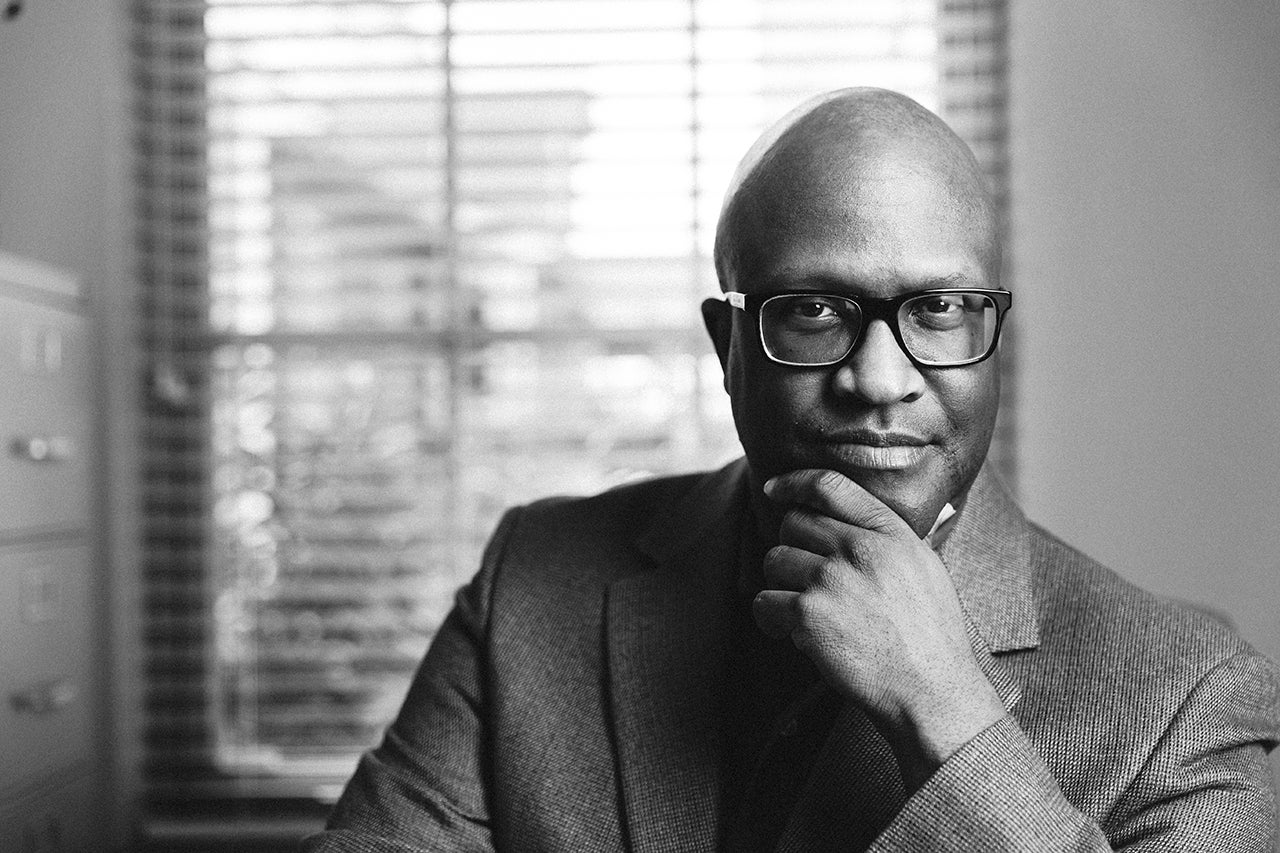When Kendall Deas was accepted into a prestigious diversity-focused fellowship program at the University of Michigan in 2016, he assumed the experience would help him grow as a professional and impart invaluable skills and insights that he could put to use in his role as a faculty member at the College of Charleston.
But the adjunct assistant professor of education policy and law couldn’t have predicted just how immediately useful the fellowship would prove to be: shortly after winning the fellowship, Deas, who is also an Honors College faculty fellow, was named director of diversity training and grant initiatives in the College’s Office of Institutional Diversity by President Glenn F. McConnell ’69.
One year later, his fellowship complete, Deas says the experience was more than he could have hoped for and has had a direct and positive impact on his new role helping to promote diversity at the College.
“My new role is a vehicle for me to deliver what I have acquired in terms of diversity knowledge,” says Deas. “It’s just a perfect connection. It couldn’t have happened any better.”
Deas was a 2016-17 New Leadership Academy Fellow at the University of Michigan-Ann Arbor and its National Center for Institutional Diversity. A partnership with the American Association for Hispanics in Higher Education, the fellowship program annually selects about 20 senior-level faculty and administrators from across the country for a one-year, non-residential fellowship that prepares them to eventually assume top leadership positions in higher education.
RELATED: Why Kendall Deas Turned Down a Music Scholarship to Pursue Education
He spent the past year meeting a diverse mix of senior leaders from colleges and universities around the country, including deans, vice presidents and both tenured and tenure-track faculty. Program participants heard from and interacted with higher education leaders who have encountered and overcome diversity-related challenges at their home institutions.
“It was eye-opening,” he says. “The demographics in this country are changing, and colleges and universities are going to be increasingly more reflective of what we see happening demographically across the country. We need faculty, staff and administrators who represent that continuum.”
Rénard Harris, associate vice president and chief diversity officer at the College, says diversity training is a key component of the College’s diversity plans and Deas’ expertise is invaluable.
“Kendall’s New Leadership Academy fellowship experience aligned perfectly with his new role in the Office of Institutional Diversity because creating diversity workshops that truly make a difference and strive to make impact on our campus community takes leadership, creativity, and strength,” says Harris.
RELATED: Meet Rénard Harris, CofC’s Chief Diversity Officer
Deas was also selected to participate in another program at Michigan’s National Center for Institutional Diversity for emerging diversity scholars. For that program, which ran concurrently with the fellowship, Deas was one of 50 scholars selected from an international pool of applicants.

Kendall Deas outside the School of Education, Health, and Human Performance (Photo by Kip Bulwinkle)
Now, he’s focused on putting the knowledge he’s acquired to good use at the College. Among his primary responsibilities for the Office of Institutional Diversity is to conduct diversity training for faculty, staff, and students.
Diversity can be a sensitive topic, and Deas says he takes great care to create a welcoming environment in his workshops that will encourage candid and constructive discussions.
“We all have a story,” he says. “Every one of us has an origin that we came from based upon life experiences that we’ve had, how we grew up, and where we were educated.”
Deas’ own story is one of academic achievement. He grew up in and attended public schools in Sumter, South Carolina. An expert in education policy and law research, he has earned several academic degrees from some of America’s leading institutions including Georgetown University, Dartmouth College and Washington University in St. Louis. Deas, a Fulbright Scholar to Finland, came to the College of Charleston in 2013 as an adjunct professor in the School of Education, Health, and Human Performance.
While he is aware that the College faces challenges with respect to diversity, Deas also sees a campus community that is motivated and committed to improving and making the university a more welcoming and more inclusive institution. Getting there will require many frank conversations in groups both large and small over many months and years. But that process is underway, and Deas will play a key role in facilitating these dialogues.
“I feel I am poised now to continue growing in the area of promoting diversity but also to continue growing as a teacher-scholar,” he says. “The challenge for us is to get comfortable talking about how we stand on the issues and who we are and then coming together to form a collective good so that this college is successful and thrives.”





